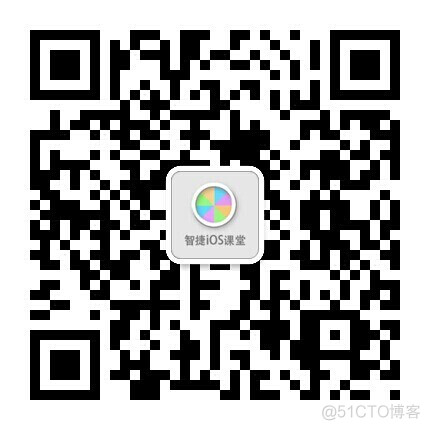为了让大家掌握Cocos2d-x中的事件机制,下面我们以触摸事件为例,使用事件触发器实现单点触摸事件。该实例如图8-3所示,场景中有三个方块精灵,显示顺序如图8-3所示,拖拽它们可以移动它们,事件响应优先级是按照它们的显示顺序。
下面我们再看看具体的程序代码,首先看一下HelloWorldScene.h文件,它的代码如下:
#ifndef __HELLOWORLD_SCENE_H__#define __HELLOWORLD_SCENE_H__
#include "cocos2d.h"
typedef enum ①
{
kBoxA_Tag = 102
,kBoxB_Tag
,kBoxC_Tag
} SpriteTags; ②
class HelloWorld : public cocos2d::Layer
{
public:
static cocos2d::Scene* createScene();
virtual bool init();
virtualvoid onEnter(); ③
virtualvoid onExit(); ④
booltouchBegan(cocos2d::Touch* touch, cocos2d::Event* event); ⑤
void touchMoved(cocos2d::Touch *touch, cocos2d::Event *event); ⑥
void touchEnded(cocos2d::Touch *touch, cocos2d::Event *event); ⑦
CREATE_FUNC(HelloWorld);
};
#endif // __HELLOWORLD_SCENE_H__
上述代码第①~②行是定义个枚举类型SpriteTags,枚举类型SpriteTags中定义了三个常量,这三个常量对应场景中的三个精灵的标签(Tag)属性。代码第③行声明了层声明周期的onEnter()函数,我们将在该函数中注册监听器和初始化设置。第④行代码是声明了层声明周期的onExit()函数,我们将在该函数中注销监听器和释放一些资源。代码第⑤~⑥行是声明单点触摸事件回调函数。
HelloWorldScene的实现代码HelloWorldScene.ccp文件,它的HelloWorld::init()代码如下:
bool HelloWorld::init(){
if( !Layer::init() )
{
returnfalse;
}
SizevisibleSize = Director::getInstance()->getVisibleSize();
Pointorigin = Director::getInstance()->getVisibleOrigin();
//贴图的纹理图片宽高必须是2的n次幂,128x128
autobg = Sprite::create("BackgroundTile.png",
Rect(0,0, visibleSize.width, visibleSize.height)); ①
//贴图的纹理参数,水平重复平铺,垂直重复平铺
Texture2D::TexParamstp = {GL_LINEAR, GL_LINEAR, GL_REPEAT, GL_REPEAT}; ②
bg->getTexture()->setTexParameters(tp); ③
bg->setPosition(origin+ Point(visibleSize.width/2, visibleSize.height/2));
addChild(bg,0); ④
Sprite*boxA = Sprite::create("BoxA2.png"); ⑤
boxA->setPosition(origin+Point(visibleSize.width/2,visibleSize.height/2) + Point(-120, 120));
addChild(boxA,10, kBoxA_Tag);
Sprite*boxB = Sprite::create("BoxB2.png");
boxB->setPosition(origin+Point(visibleSize.width/2,visibleSize.height/2));
addChild(boxB,20, kBoxB_Tag);
Sprite*boxC = Sprite::create("BoxC2.png");
boxC->setPosition(origin+Point(visibleSize.width/2,visibleSize.height/2) + Point(120, 160));
addChild(boxC,30, kBoxC_Tag); ⑥
returntrue;
}
我们在HelloWorld::init()函数中初始化了场景中的背景和三个方块精灵。代码第①~④行是创建并添加背景,图8-3所示的背景是由一个128x128纹理图片(BackgroundTile.png)反复贴图上,这样可以减少内存消耗,在第①行代码中创建背景精灵对象,注意背景的大小仍然是整个屏幕。第②行代码是设置贴图的纹理的参数,Texture2D::TexParams类型是一个结构体。第③行代码是将参数设置到背景精灵的纹理上。第④行代码是添加背景精灵到当前层。
代码第⑤~⑥行是创建了三个方块精灵,在添加它到当前层的时候我们使用三个参数的addChild(Node* child,int localZOrder,int tag)函数,这样可以通过localZOrder参数指定精灵的显示顺序。
HelloWorldScene.ccp中的HelloWorld::onEnter()代码如下:void HelloWorld::onEnter()
{
Layer::onEnter();
log("HelloWorldonEnter");
autolistener = EventListenerTouchOneByOne::create(); ①
listener->setSwallowTouches(true); ②
listener->onTouchBegan= CC_CALLBACK_2(HelloWorld::touchBegan, this); ③
listener->onTouchMoved= CC_CALLBACK_2(HelloWorld::touchMoved,this); ④
listener->onTouchEnded= CC_CALLBACK_2(HelloWorld::touchEnded,this); ⑤
//添加监听器
EventDispatcher*eventDispatcher = Director::getInstance()->getEventDispatcher(); ⑥
eventDispatcher->addEventListenerWithSceneGraphPriority(listener,
getChildByTag(kBoxA_Tag)); ⑦
eventDispatcher->addEventListenerWithSceneGraphPriority(listener->clone(),
getChildByTag(kBoxB_Tag)); ⑧
eventDispatcher->addEventListenerWithSceneGraphPriority(listener->clone(),
getChildByTag(kBoxC_Tag)); ⑨
}
上述代码第①行是创建一个单点触摸事件监听器对象。第②行代码是设置是否吞没事件,如果设置为true,那么在onTouchBegan函数返回 true 时吞没事件,事件不会传递给下一个Node对象。第③行代码是设置监听器的onTouchBegan属性回调函数。第④行代码是设置监听器的onTouchMoved属性回调函数。第⑤行代码是设置监听器的onTouchEnded属性回调函数。
代码第⑥~⑨行是添加监听器,其中第⑦行使用精灵显示优先级添加事件监听器,其中参数getChildByTag(kBoxA_Tag)是通过精灵标签Tag实现获得精灵对象。第⑧行和第⑨行代码是为另外两精灵添加事件监听器,其中listener->clone()获得listener对象,使用clone()函数是因为每一个事件监听器只能被添加一次,addEventListenerWithSceneGraphPriority和addEventListenerWithFixedPriority会在添加事件监听器时设置一个注册标识,一旦设置了注册标识,该监听器就不能再用于注册其它事件监听了,因此我们需要使用listener->clone()克隆一个新的监听器对象,把这个新的监听器对象用于注册。
HelloWorldScene.ccp中的触摸事件回调函数代码如下:
bool HelloWorld::touchBegan(Touch*touch, Event* event) ①{
//获取事件所绑定的 target
autotarget = static_cast<Sprite*>(event->getCurrentTarget()); ②
PointlocationInNode = target->convertToNodeSpace(touch->getLocation()); ③
Sizes = target->getContentSize(); ④
Rectrect = Rect(0, 0, s.width, s.height); ⑤
//点击范围判断检测
if(rect.containsPoint(locationInNode)) ⑥
{
log("spritex = %f, y = %f ", locationInNode.x, locationInNode.y);
log("spritetag = %d", target->getTag());
target->runAction(ScaleBy::create(0.06f,1.06f)); ⑦
returntrue; ⑧
}
returnfalse;
}
void HelloWorld::touchMoved(Touch*touch, Event *event) ⑨
{
log("onTouchMoved");
autotarget = static_cast<Sprite*>(event->getCurrentTarget());
target->setPosition(target->getPosition()+ touch->getDelta()); ⑩
}
void HelloWorld::touchEnded(Touch*touch, Event *event) ⑪
{
log("onTouchEnded");
autotarget = static_cast<Sprite*>(event->getCurrentTarget());
log("spriteonTouchesEnded.. ");
PointlocationInNode = target->convertToNodeSpace(touch->getLocation());
Sizes = target->getContentSize();
Rectrect = Rect(0, 0, s.width, s.height);
//点击范围判断检测
if(rect.containsPoint(locationInNode))
{
log("spritex = %f, y = %f ", locationInNode.x, locationInNode.y);
log("spritetag = %d", target->getTag());
target->runAction(ScaleTo::create(0.06f,1.0f));
}
}
上代码第①行是定义回调函数touchBegan。第②行代码是获取事件所绑定的精灵对象,其中event->getCurrentTarget()语句返回值是Node对象,static_cast<Sprite*>是强制类型转换为Sprite对象。第③行代码是获取当前触摸点相对于target对象的本地坐标。第④行代码是获得target对象的尺寸。第⑤行代码是通过target对象的尺寸创建Rect变量。第⑥行代码rect.containsPoint(locationInNode)是判断是否触摸点在target对象范围。第⑦行代码是放大target对象。第⑧行代码返回true,表示可以回调第⑨行touchMoved函数和第⑪行touchEnded函数。第⑩行代码是移动target对象的位置。
HelloWorldScene.ccp中的HelloWorld::onExit()代码如下:
void HelloWorld::onExit(){
Layer::onExit();
log("HelloWorldonExit");
Director::getInstance()->getEventDispatcher()->removeAllEventListeners();
}
上述HelloWorld::onExit()函数是退出层时候回调,我们在这个函数中注销所有的监听事件。
提示 多点触摸事件是与具体的平台有关系的,在Win32平台下我们无法测试多点触摸。事实上多点触摸和单点触摸开发流程基本相似,这里我们就不再赘述了。

